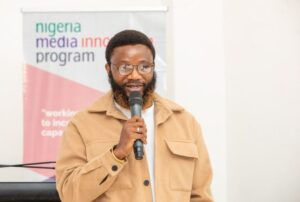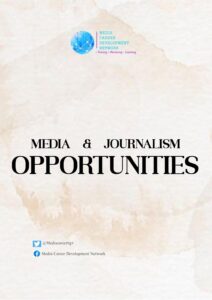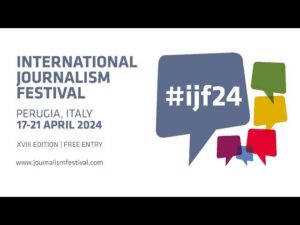In a recent webinar hosted by Africa No Filter Academy, experienced grant writers Samantha Nengomasha and Victor Mark-onyegbu shared valuable insights on what it takes to craft a compelling grant proposal that captures the attention of funders. With their combined expertise, they shed light on the dos and don’ts of applying for grants from partnering funders.
Samantha Nengomasha, Grants Lead at Hivos Southern Africa, stressed the importance of understanding your brand and establishing a distinct identity separate from other brands. She stated that knowing who you are as an artist or storyteller is crucial in order to present a compelling image that resonates with funders.
Additionally, Nengomasha emphasised the need to outline clear and specific goals and objectives that are measurable, achievable, realistic, and time-bound (SMART).
“By articulating your aspirations concisely, funders can better understand your vision,” she stated.
Speaking on the need to understand your stakeholders in grant writing, Nengomasha encouraged applicants to analyse their target audience, know their demography, and ensure their proposal aligns with the needs and interests of the community they aim to serve.
Furthermore, she urged applicants to evaluate whether their project makes business sense; “is it sustainable? Does it possess the scalability required for long-term success? And also know if it demonstrates the organisational capacity to deliver the proposed project, as well as establish a track record that aligns with your future goals”.
“Moreso, build relationships and collaborate. Make relationships with people that have done what you are doing and ask them what is obtainable,” she explained.
Victor Mark-onyegbu, Grants Lead at Africa No Filter, clarified that grants are conditional financial support provided by governments or institutions to fulfil specific missions.
Debunking the myth of “free” grants, he stated that grant proposals must align with the objectives and missions of the funding organisations and urged those applying for grants to conduct thorough research on the funding patterns, as well as review past grants of the organisation.
Discussing the key elements of a grant proposal, Mark-onyegbu highlighted the importance of adhering to the stipulated templates and guidelines provided by the grantmaker which he said encompass word count, page limits, document formats, and other essential details.
“Decisions are not only made in quality but in clarity. Don’t forget to grant access permission for hyperlinked documents, avoid long preambles, definitions, concepts, lectures etc, except where required and also ensure to provide clarity through bullet points as much as possible.”
He also underscored the significance of the executive summary, noting that, “it says a lot about you as it serves as the reader’s first impression of your proposal.”
“The executive summary should succinctly introduce your organisation, provide a brief description of the problem to be addressed, outline the expected costs, and highlight the unique qualities that make your program/project a suitable fit”, he said.
On crafting a budget for grant writing, Mark-onyegbu offered guidelines to follow: “It is crucial to ensure that the requested amount is realistic and accurately reflects the needs of the project. Don’t pad your budget, separate revenue from expenditures, avoid lengthy preambles, and be mindful of your capital spending on content grants – it can be a red flag. Moreso, understanding the currency used by the grant giver is essential for accurate budgeting”.
READ ALSO: 21 years and still counting in telecoms industry- Oparah





